 Petzlover
Petzlover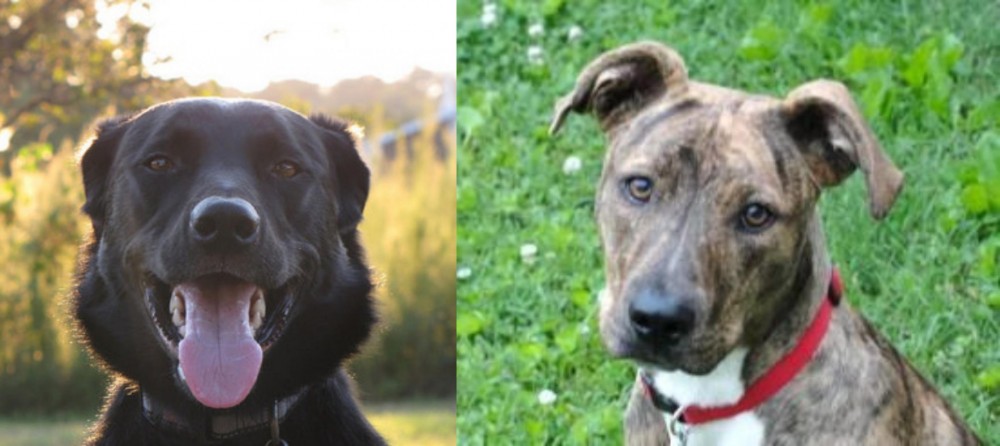 Both Borador and Mountain Cur are originated from United States. Borador may grow 9 cm / 3 inches shorter than Mountain Cur. Both Borador and Mountain Cur are having almost same weight. Both Borador and Mountain Cur has almost same life span. Both Borador and Mountain Cur has almost same litter size. Borador requires Moderate Maintenance. But Mountain Cur requires Low Maintenance
Both Borador and Mountain Cur are originated from United States. Borador may grow 9 cm / 3 inches shorter than Mountain Cur. Both Borador and Mountain Cur are having almost same weight. Both Borador and Mountain Cur has almost same life span. Both Borador and Mountain Cur has almost same litter size. Borador requires Moderate Maintenance. But Mountain Cur requires Low Maintenance
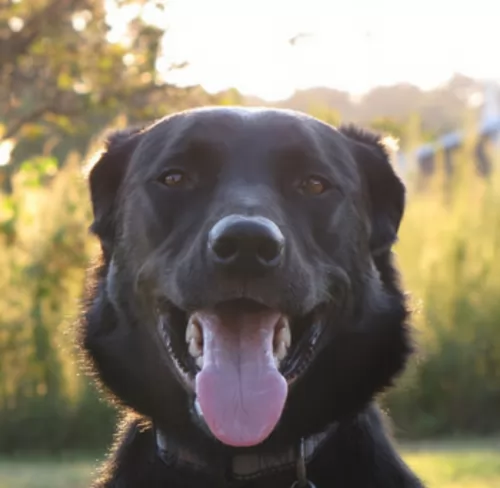 Hybrid breeds have become popular in the last decade or so. The Borador, hailing from Northern America, is one of these popular crossbreeds between two very popular dog breeds - the Border Collie and the Labrador Retriever. Between the two dog breeds, you get extraordinary intelligence, energy and a wonderful temperament.
Hybrid breeds have become popular in the last decade or so. The Borador, hailing from Northern America, is one of these popular crossbreeds between two very popular dog breeds - the Border Collie and the Labrador Retriever. Between the two dog breeds, you get extraordinary intelligence, energy and a wonderful temperament.
You first started hearing about this dog breed in the early 21st century. However each of the two breeds brought together to produce the Borador have got reasonable lengthy histories.
 From The United States in the hound group comes the Mountain Cur. This breed was developed especially to “tree” their prey and to trail other smaller game. They treed and bayed larger prey like the wild boar and bears in the mountains and they trailed the smaller ones like the raccoon and squirrel. There are many types of curs and this breed is just one. Curs can be water dogs, farm dogs, hunting dogs and guard dogs. However, they are not great family dogs because they were born to hunt.
From The United States in the hound group comes the Mountain Cur. This breed was developed especially to “tree” their prey and to trail other smaller game. They treed and bayed larger prey like the wild boar and bears in the mountains and they trailed the smaller ones like the raccoon and squirrel. There are many types of curs and this breed is just one. Curs can be water dogs, farm dogs, hunting dogs and guard dogs. However, they are not great family dogs because they were born to hunt.
The Mountain Cur comes out of Kentucky, Tennessee, Ohio and Virginia. The ancestors of the American Mountain Cur came with European settlers almost 200 years ago. They worked with the settlers to hunt for animals that would provide them with pelts and meat in order to survive on the frontier. The breed became rare when the descendants of the settlers moved to the factories after the second world war.
The breed was brought back by four ambitious men who saved the Mountain Cur. They form the Original Mountain Cur Breeder’s Association of OMCBA in 1956. But they argued over the standard and 2 of the 4 left to form their own association: The Stephen Stock Mountain Cur Association. By 1957 the Mountain Cur Breeder’s Association formed but it took until 1998 for the Mountain Cur to be registered with the United Kennel Club.
The Mountain Cur is a tough, courageous dog as are all the Curs. They are willing to face large and ferocious prey. They are fearless watch dogs, using their trait of being quiet on the hunt to their advantage. The Mountain Cur wants nothing more than making you happy. They have been known to corner bears and even bulls. Given the independence and intelligence of the Mountain Cur it is important that the human be the pack leader, or the Cur will assume the role. If angry the Cur will growl and bite, so being the pack leader is vital for humans.
The novel “Old Yeller” was written about a Mountain Cur – a yellow shorthaired dog with a bobbed tail and terrier blood. Like all Mountain Curs “Old Yeller” hunted and treed prey, fought a bear and held onto the nose of a charging bull. The Cur was the first American purebred dog. Other early lines come from the Appalachian Mountains and near them in southern states. Mixing hounds and terriers created this tough, courageous dog whose tenacity and grit are second to none. Today the Mountain Cur has been split into four distinct breeds: the Mountain Cur, The Mountain View Cur, the Stephens Stock, and the Treeing Tennessee Brindle.
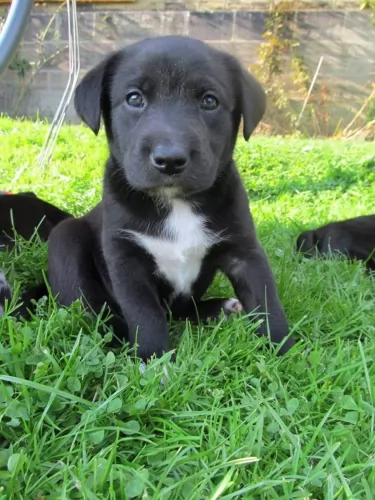 The Borador is a medium to large sized working dog which is well well-proportioned and muscular. His size can’t be carved in stone, but generally he will be in size from 40 – 57cm and weight in the region of 18 and 26 kg. His coat can vary significantly, leaning more towards one particular breed than the other. So the coat can be short and smooth or long and wavy or straight.
The Borador is a medium to large sized working dog which is well well-proportioned and muscular. His size can’t be carved in stone, but generally he will be in size from 40 – 57cm and weight in the region of 18 and 26 kg. His coat can vary significantly, leaning more towards one particular breed than the other. So the coat can be short and smooth or long and wavy or straight.
The Borador essentially has medium-sized ears which are floppy and the tail is medium-length. Sometimes the Borador will have the black and white coat of the Border Collie or he could have a brownish/beige colour from a golden Labrador.
When your energetic Borador is trained and socialized, he becomes a great family member and he gets on well with children and other pets.You’ll find that he often has the sweet, amicable temperament of the Labrador while having the sharp, alert intellect of the Border Collie.
Most Boradors are also good watchdogs and will bark at strangers, but because they are so amicable, from barking, they can quickly become a stranger’s friend.
 Bred to be a hard working hunter and protector, the Mountain Cur is rugged and stocky. They are muscular with strong neck, wide head and expressive dark brown eyes. Some may have blue or green eyes, but they will be darker instead of light. They have a heavy muzzle, high set short ears and feet that are catlike, muscular and strong. The Cur has straight legs, deep chests and 50% are born with the tail bobbed.
Bred to be a hard working hunter and protector, the Mountain Cur is rugged and stocky. They are muscular with strong neck, wide head and expressive dark brown eyes. Some may have blue or green eyes, but they will be darker instead of light. They have a heavy muzzle, high set short ears and feet that are catlike, muscular and strong. The Cur has straight legs, deep chests and 50% are born with the tail bobbed.
Their coat is short and heavy. The colors could be yellow, red, blue, brindle, black and brindle, yellow with white points, dark brown and red.
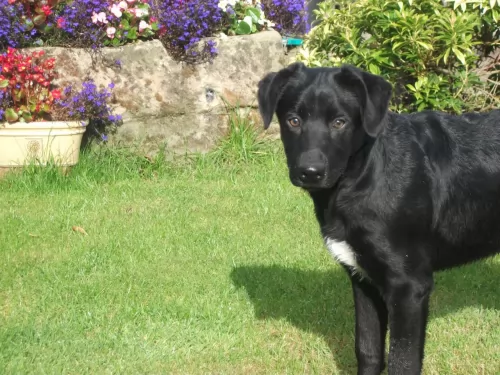 The Borador is an intelligent dog that can be trained. He is a sociable dog and is friendly to all members of his human family, willing to extend a paw of friendship to strangers as well.
The Borador is an intelligent dog that can be trained. He is a sociable dog and is friendly to all members of his human family, willing to extend a paw of friendship to strangers as well.
The Borador is also a friend of children and other pets. This combination of breeds is very energetic and you can’t just leave him for days on end in the backyard. He will need exercise and walks as well as ball games. When you become involved in his games, you tighten the bond between you and this is what this social, outgoing dog loves.
The Borador is going to make a wonderful pet because he is a mix of two very popular dog breeds. Give him all he deserves as a member of your family and you’ll have the perfect friend and companion for life.
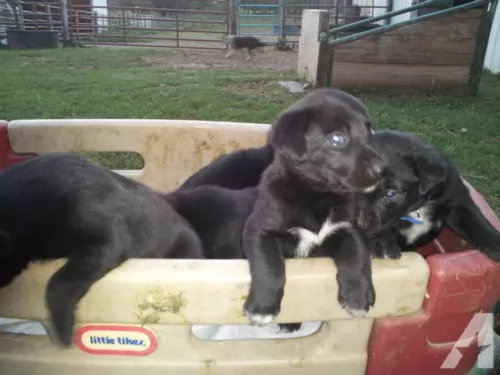 You won’t find serious health problems with your Boradors, as he is a robust breed. Nonetheless, there are some ailments that as a dog owner, you need to be aware of for your Borador.
You won’t find serious health problems with your Boradors, as he is a robust breed. Nonetheless, there are some ailments that as a dog owner, you need to be aware of for your Borador.
Skin ailments – you don’t want to see your dog scratching or licking continuously so you want to be aware of things like parasites and allergies. Skin diseases can be debilitating for a dog and can even require lifelong treatments. Yes, corticosteroids can help with itchy rashes, but the best move is to try and avoid skin ailments by ensuring a nutritious diet rich in minerals and vitamins and which includes some raw meat.
Always be checking your pet for skin problems such as ringworm, caused by a fungus and found on your dog and which appear as scaly patches and hair loss.
Hip Dysplasia – an inherited problem with the hip joints. No-one can predict when hip dysplasia settles in, but it can be as early as 4 months of age.Your dog shows signs of stiffness and may not be his energetic self. Some dog owners want to see certificates first that the parents of puppies have been hip-cleared before they buy a puppy.
 There are a few health issues that the Mountain Cur is susceptible to. They include:
There are a few health issues that the Mountain Cur is susceptible to. They include:
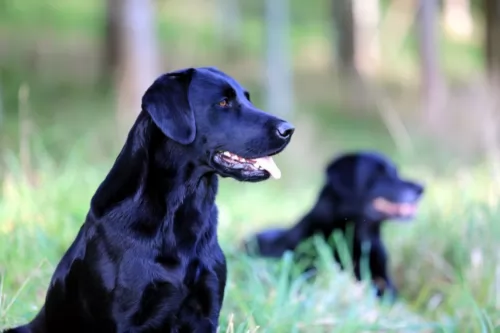 The Borador may have inherited the moderate shedder characteristics of the Border Collie or the more intense shedding of the Labrador Retriever. He will require a good brush at least twice a week to ensure you remove loose hairs so as to keep his coat shiny and healthy. Check your dogs ears too for yeast infections.
The Borador may have inherited the moderate shedder characteristics of the Border Collie or the more intense shedding of the Labrador Retriever. He will require a good brush at least twice a week to ensure you remove loose hairs so as to keep his coat shiny and healthy. Check your dogs ears too for yeast infections.
Puppies and young Boradors are full of energy and they will require a diet that has an excellent protein content. If you’re unsure about how to feed your Borador, speak to your vet as some dogs need more calories depending on their level of activity.
Certainly if your dog has allergies, you may have to look for a special diet but otherwise a top brand commercial dog food can be a good choice if you include some home prepared food such as rice, vegetables and meat. It is important to give your dog some raw meat every now and then as well. Always have a bowl of cool, fresh water available for your pet 24/7.
 Mountain Cure puppies should eat four bowls of high quality dog food in four separate meals each day until 3 months old. From three months to six months feed them 3 times per day and from six months to a year just twice a day.
Mountain Cure puppies should eat four bowls of high quality dog food in four separate meals each day until 3 months old. From three months to six months feed them 3 times per day and from six months to a year just twice a day.
The adult Mountain Cur would eat 3 cups of high quality dog food in one or two meals per day. Don’t overfeed them as they have a tendency toward obesity.
Athleticism
This breed is an active dog and he needs to get plenty of exercise. He needs daily exercise – daily walks – and enjoys canine sports like barn hunt and agility. They do well in field trials.